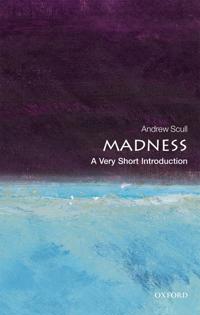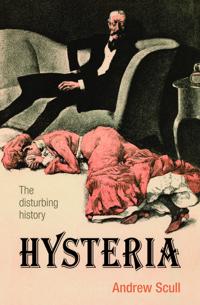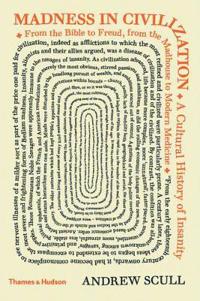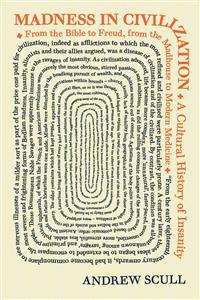Madness (Häftad)
avAndrew Scull
ISBN: 9780199608034 - UTGIVEN: 201108Madness is something that frightens and fascinates us all. It is a word with which we are universally familiar, and a condition that haunts the human imagination. Through the centuries, in poetry and in prose, in drama and in the visual arts, its depredations are on display for all to see. A whole[...]
Hysteria (Pocket)
avAndrew Scull
ISBN: 9780199692989 - UTGIVEN: 201201The nineteenth century seems to have been full of hysterical women - or so they were diagnosed. Where are they now? The very disease no longer exists. In this fascinating account, Andrew Scull tells the story of Hysteria - an illness that disappeared not through medical endeavour, but through growin[...]
Madness in Civilization (Inbunden)
avAndrew Scull
ISBN: 9780500252123 - UTGIVEN: 2015-03This hugely ambitious volume, worldwide in scope and ranging from antiquity to the present, examines the human encounter with Unreason in all its manifestations, the challenges it poses to society and our responses to it. In twelve chapters organized chronologically from the Bible to Freud, from exo[...]
Customers and Patrons of the Mad-Trade: The Management of Lunacy in Eighteenth-Century London (Inbunden)
avJonathan Andrews, Andrew Scull
ISBN: 9780520226609 - UTGIVEN: 2003-01-16Madness in Civilization: A Cultural History of Insanity, from the Bible to Freud, from the Madhouse to Modern Medicine (Inbunden)
avAndrew Scull
ISBN: 9780691166155 - UTGIVEN: 2015-04The loss of reason, a sense of alienation from the commonsense world we all like to imagine we inhabit, the shattering emotional turmoil that seizes hold and won't let go--these are some of the traits we associate with madness. Today, mental disturbance is most commonly viewed through a medical lens[...]
The Asylum as Utopia (Pocket)
avAndrew (EDT) Scull
ISBN: 9780415730631 - UTGIVEN: 2015-04What Asylums Were, Are, and Ought to Be, first published in 1837, was of considerable significance in the history of lunacy reform in Britain. It contains perhaps the single most influential portrait by a medical author of the horrors of the traditional madhouse system. Its powerful and ideologicall[...]








